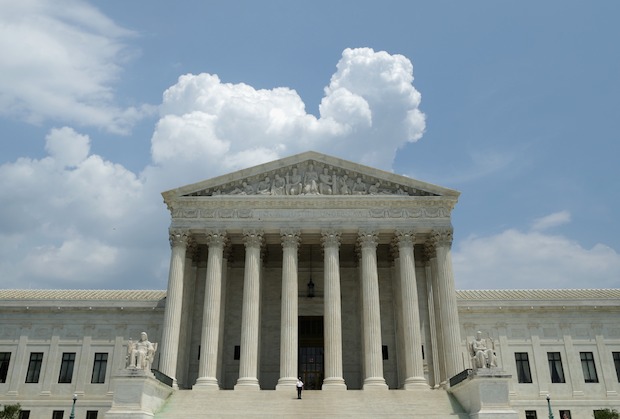It’s back-to-court day for the Supreme Court, which began its new term today. Among the key race issues the Supreme Court will consider this year are gerrymandering of African-American-heavy districts, the Fair Housing Act, religious discrimination, and the extent to which rap lyrics comprise a threat.
In other words, it’s time to brace yourself. University of California, Irvine School of Law Dean Erwin Chemerinsky writes in the Los Angeles Times that for those concerned with civil rights, the High Court’s long past and recent history doesn’t inspire a lot of confidence:
[O]ver the course of American history, the court has repeatedly failed at its most important tasks and at the most important times. As much as we might like to think of the court as an evenhanded dispenser of justice, it often is not. For the first 78 years of American history, until the ratification of the 13th Amendment in 1865, for example, the court consistently sided with slave owners and aggressively enforced the institution of slavery. For 58 years, from 1896 until 1954, the court embraced the noxious doctrine of "separate but equal" and upheld Jim Crow laws that segregated the races in every aspect of Southern life.
Citizens think of the nation’s highest court as the last resort for the individual, but the Supreme Court has continually failed to stand up to majoritarian pressures in times of crisis. During World War I, individuals were imprisoned for speech that criticized the draft and the war without the slightest evidence that the expression had any adverse effect on military recruitment or the war effort. During World War II, 110,000 Japanese Americans were uprooted from their homes and placed in what President Franklin Roosevelt referred to as concentration camps. During the McCarthy era, people were imprisoned simply for teaching works by Marx. In all of these instances, the court ruled in favor of the government and erred by failing to enforce the basic constitutional guarantees of freedom of speech and equal protection.
Read the rest at the Los Angeles Times, and a quick look at cases the Supreme Court will consider this term from SCOTUSblog.
